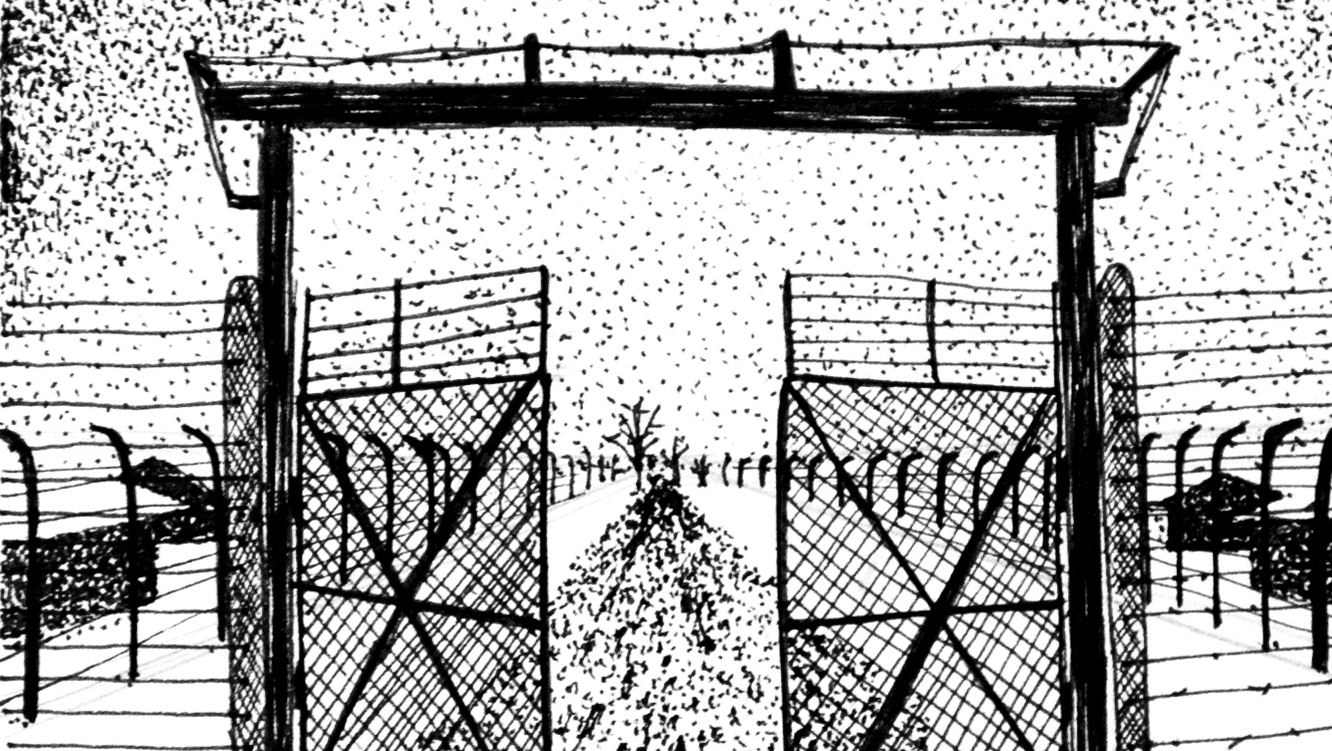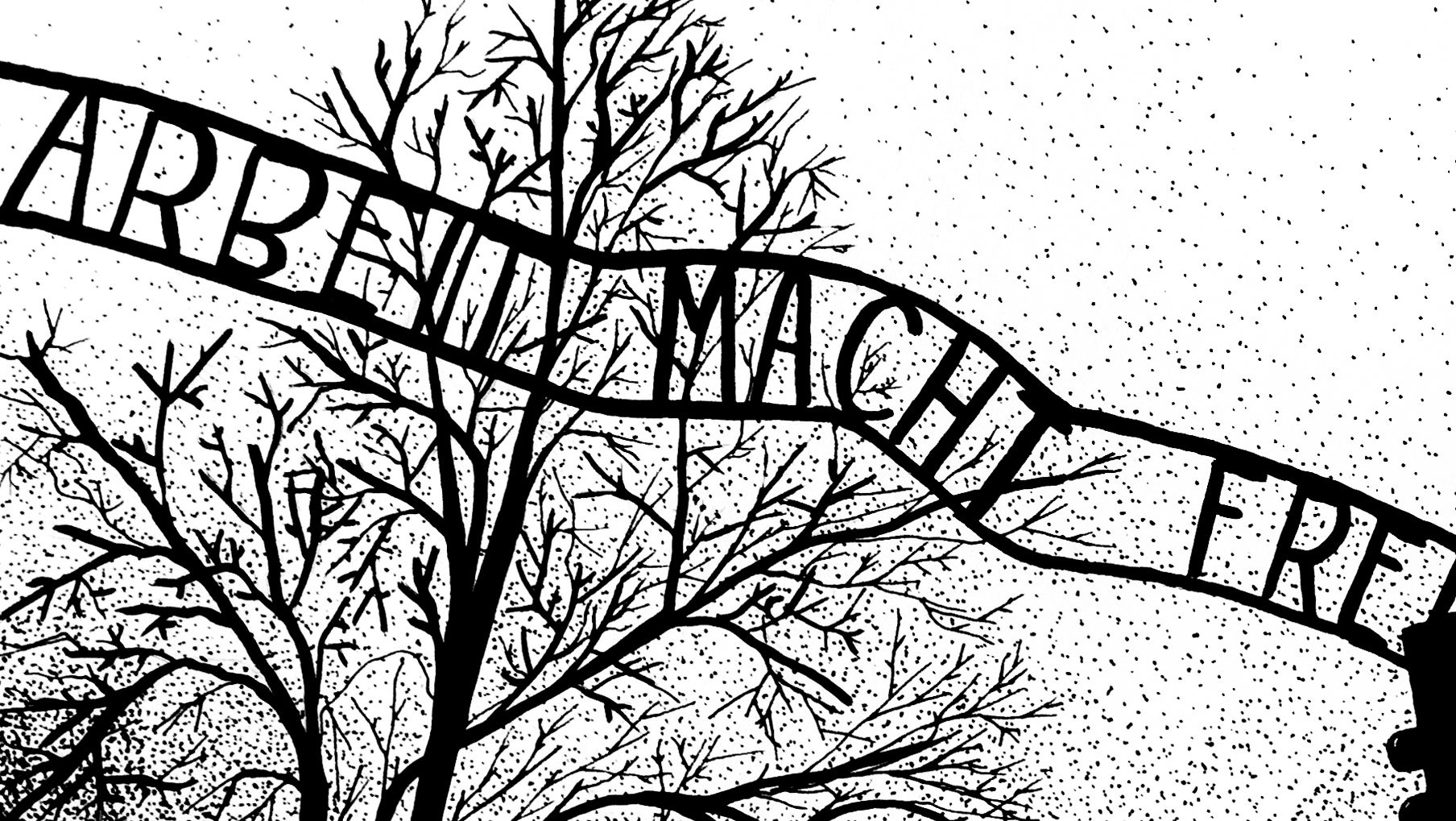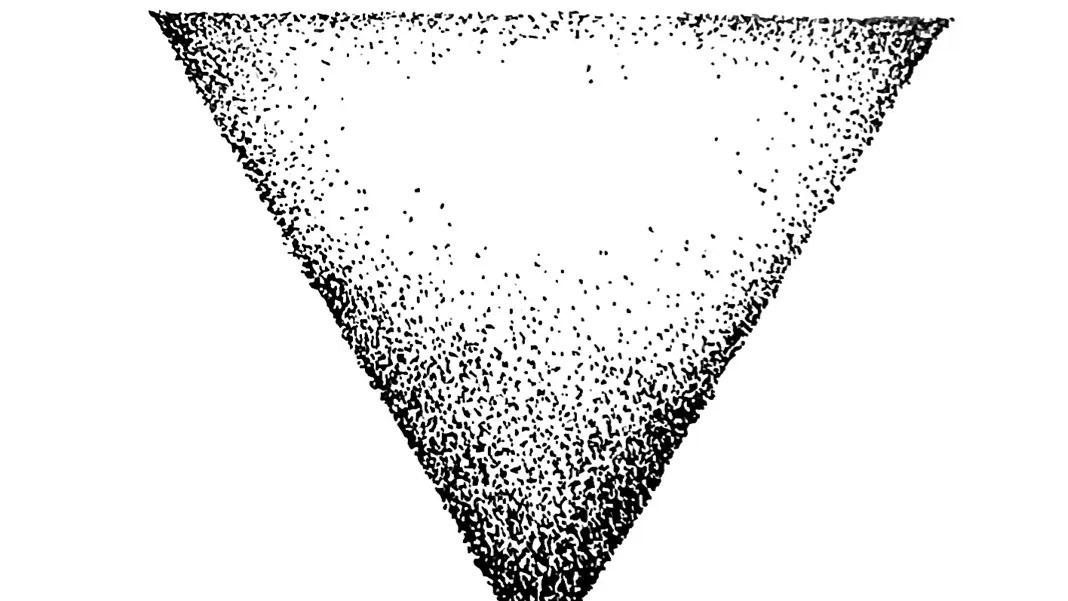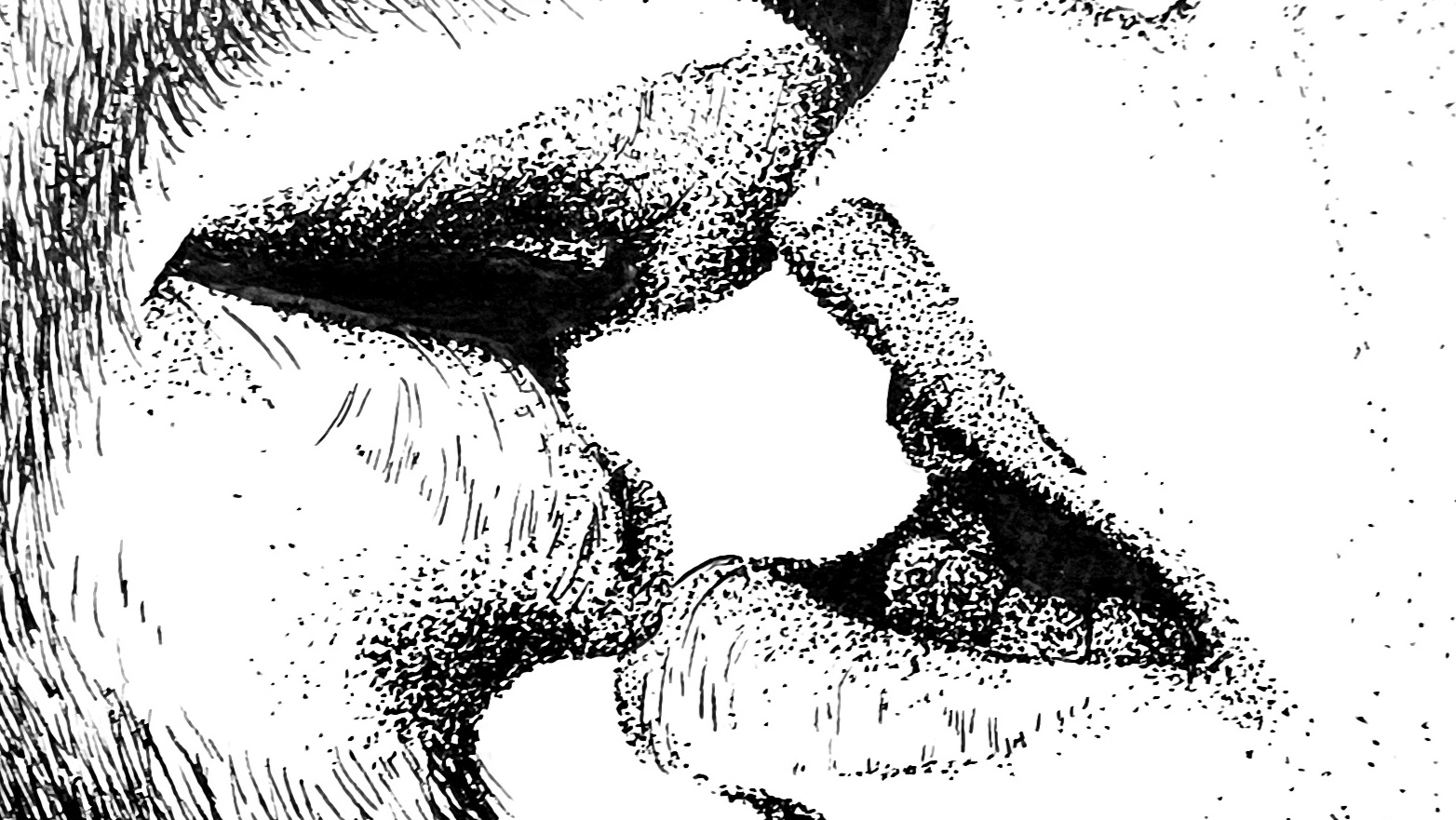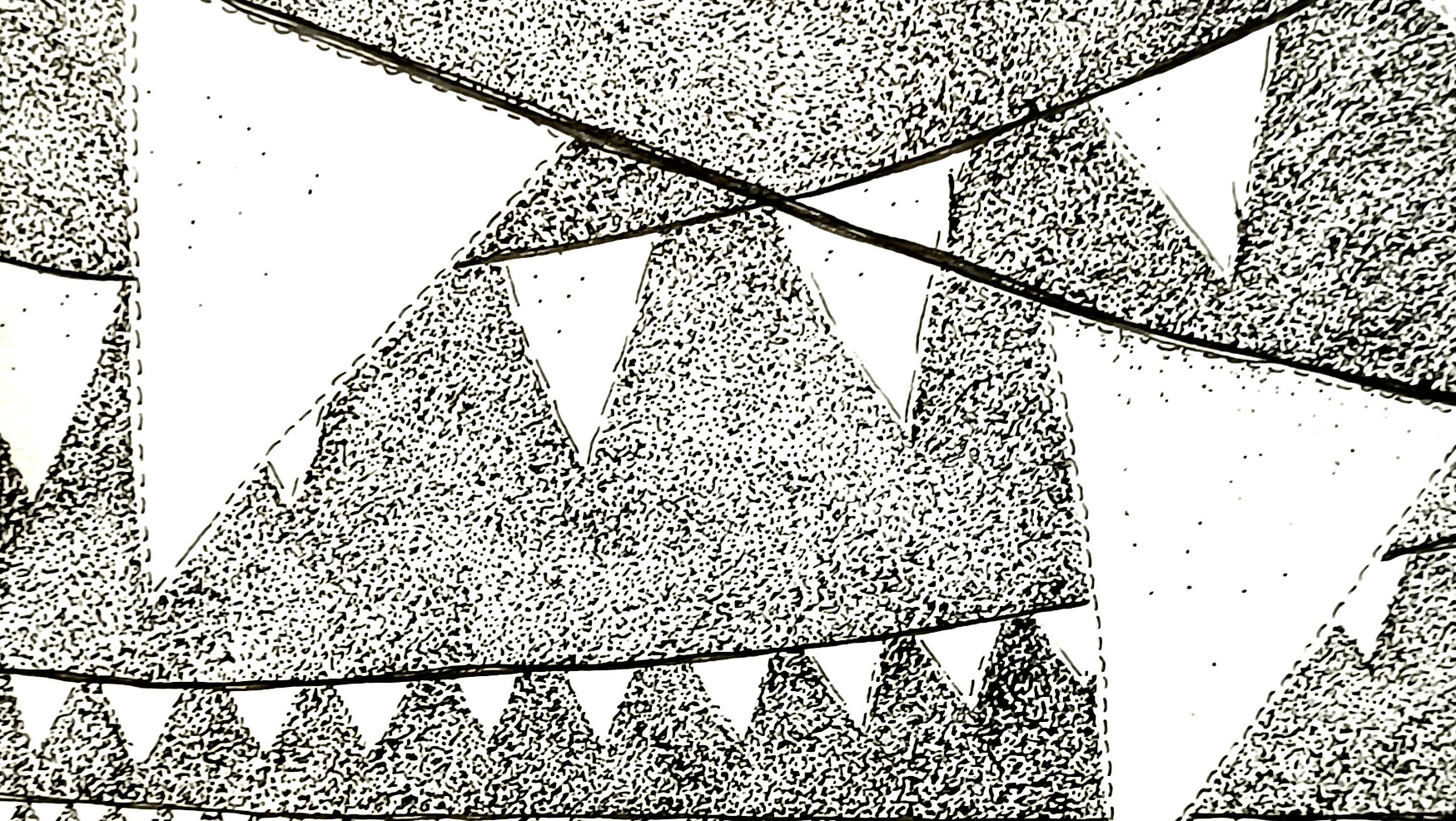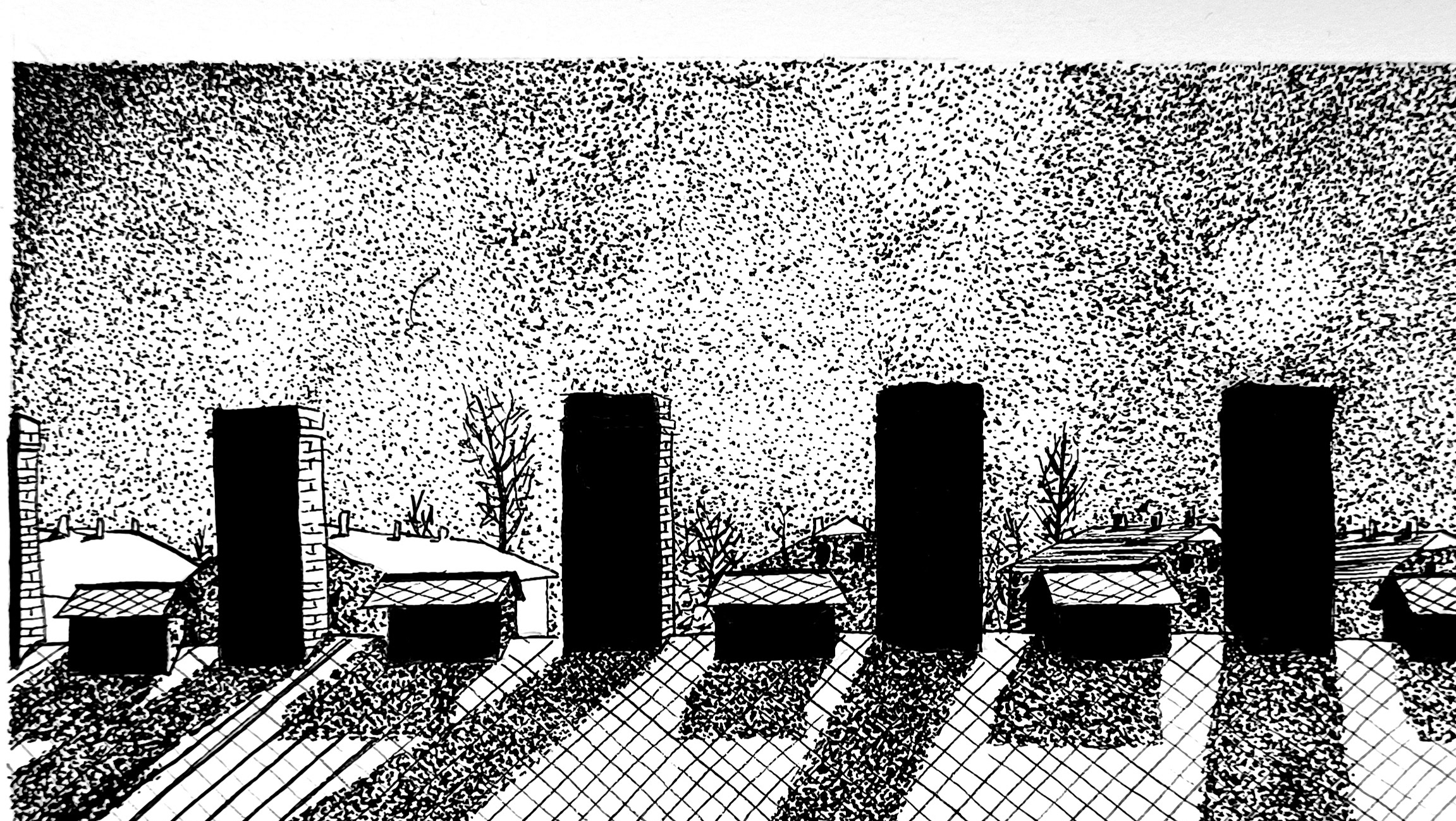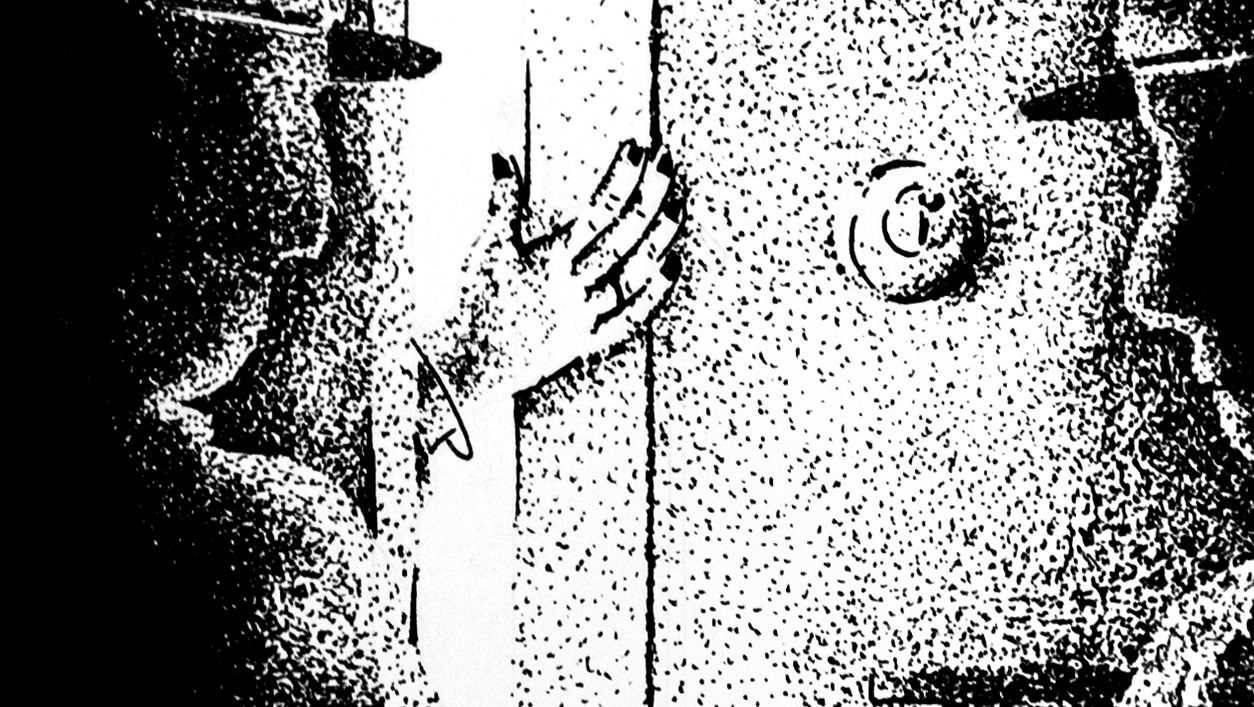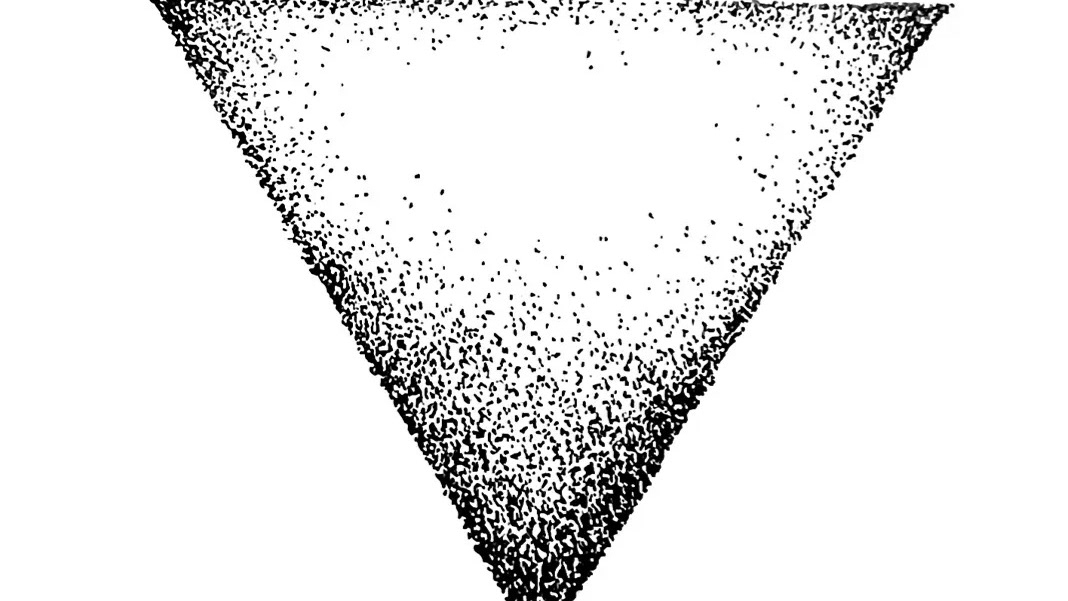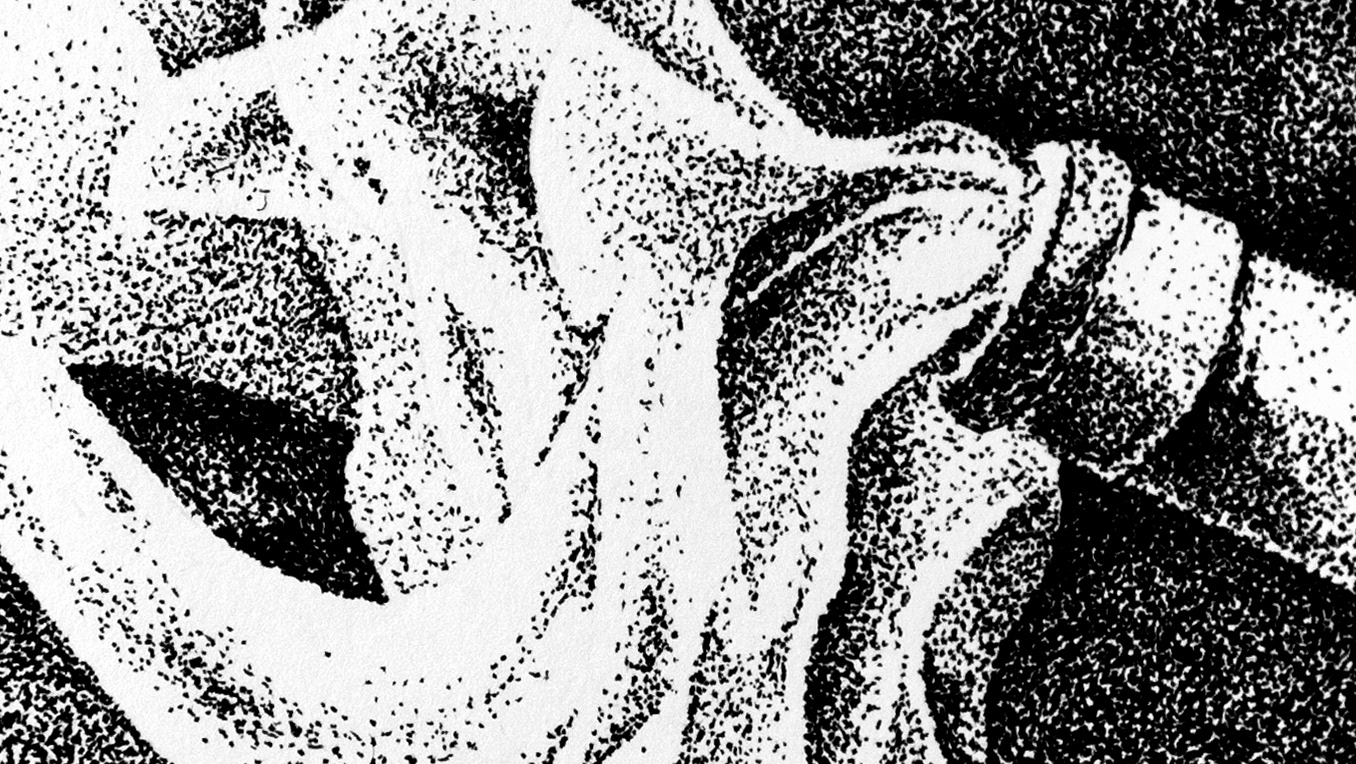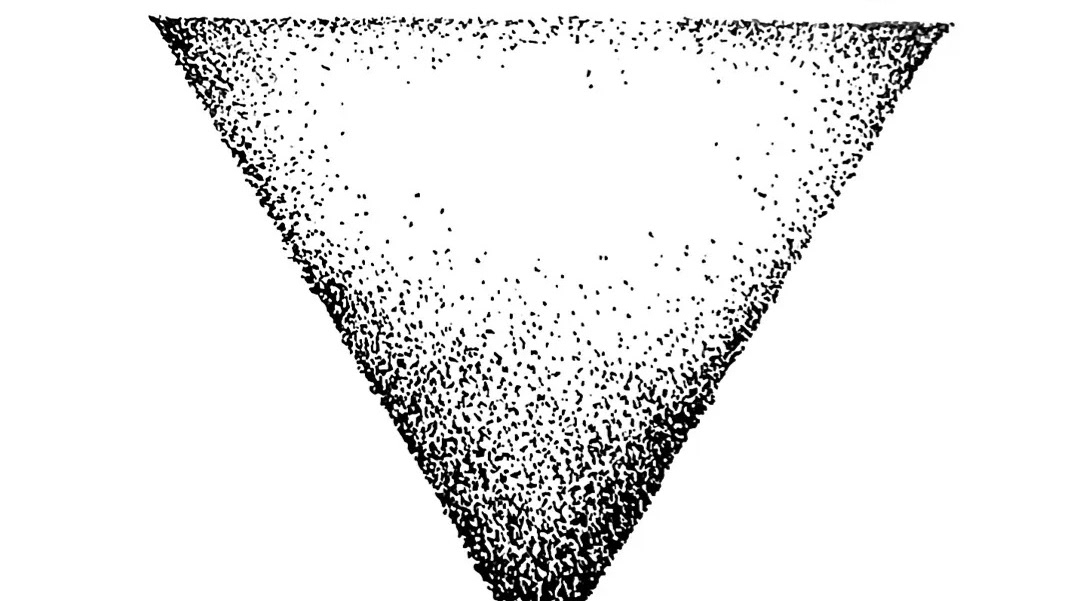The fog
Today is a day in March 1943. It is slightly less cold today, although it is a foggy morning.
Anne Marie Ostrowska is french, german, catholic, jewish. She is all of those things. And she is also a prisoner in Birkenau, a member of the swamp kommando.
The work is tough, really tough. Birkenau needs to be extended so the swamped areas around it need to be dried up. The women basically spend all day drenched in mud, digging and digging. Whether it gets colder, or if it rains, they must keep on digging. And when the day ends, no matter how many of them passed away, they all need to come back to the camp to be counted.
But today is a foggy day, so foggy that at one point, as Anne-Marie looks all around her, there is only her, the fog, and 3 silhouettes coming towards her.
Back in 1920, Anne Marie was living with her parents in Germany. She fell in love with Salomon Ostrowska, a polish man whose family left Soviet Unionn occupied Warsaw. They wished to marry yet there were obstacles. The first one was that they couldn't marry without papers, and as Salomon's family escaped Poland, he had none.
The second issue was that Anne Marie's parents refused to have her, a catholic young girl, marry a jewish man. They had a religious wedding, Anne Marie's parents didn't attend. This marked the end of her relationship with her own family. Then they left together for Berlin.
In 1923, Adolf Hitler attempted a military coup. It failed yet the Ostrowski had a feeling that jewish people would soon be less than welcome in Germany. In 1925, they decided to move in a country where antisemitic laws couldn't possibly exist, the country of human rights, France. There, they got new ID’s, they could marry, open a leather goods shop and raise in confidence their 2 children, Alfred and Eleonore.
But France lost the war, and soon after, it lost its soul.
They didn't think it would be a bad thing to register as jewish when France asked every jewish person to register. Anne-Marie didn't want to take any chance of being separated from her husband and kids so she registered as jewish too.
But France was no longer the country of human rights, if it ever was. In 1941, the Salomon were forced to close their shop. Once again, the Ostrowski decided to move, yet where to go? The United Kingdom seemed impossible, so they decided to move South, in the french free zone, where jewish people weren't targeted as much as in the german occupied zone. It was decided that Salomon and Alfred would go first, Anne-Marie and Eleonore would follow.
On the 21st of December, Salomon and Alfred got arrested before they could reach the french free zone border and sent to different camps.
When Anne Marie learned they didn't make it south, she decided to go with Eleonore and find a way to free them both. It didn't matter how difficult or unlikely, Anne-Marie would find a way. So she could cross the border easily, she declared herself again, as a catholic rather than jewish. But as they attempted to cross the borders, they too got arrested in October 1942.
The worst situation happened. Anne-Marie was a catholic german who tried to cross the border illegally, Eleonore a half jewish girl, Alfred a half jewish boy, Salomon a polish jewish man, it turned out there was a different camp for each of them. Any attempt Anne-Marie did to be reunited with her daughter, son or husband, was in vain. To make matters worse, on the 11th of November 1942, the german army entered and ended the french free zone. Now there was only german occupied France, hope took another hit, the Second World War was already full of those tragic hits.
Back to the present, on a foggy day in Birkenau, Anne-Marie looks around. You can't see a thing, it's almost as if Anne-Marie is on her own. But she doesn't want to be alone, she has been lonely for the past 6 months. She wants her family.
The mysterious 3 silhouettes are still here, in the distance. Maybe those are the women working with her, maybe those are guards.
Maybe, maybe it is someone else. Maybe, who knows, Salomon, Eleonore and Alfred escaped from their respective camps, maybe they found a way South and managed to find each other? This sounds difficult, but they could have waited for each other in a big city, at a train station. Maybe they found a nice place to live, a tiny flat, a discreet place, and they waited, the 3 of them, for Anne-Marie to come. Possibly, after a few months, they started to look for Anne-Marie, Salomon is a resourceful man, he could have found out that Anne-Marie was sent in Birkenau. Maybe they took a train east, incognito, they crossed Germany and made it to polish territory. It sounds unlikely, but Salomon is polish, he could have managed to arrive discreetly. Who knows, they could have waited for a foggy day to arrive, so they could come closer to Anne-Marie?
Maybe those 3 silhouettes are Salomon, Alfred and Eleonore, and they will be finally reunited. A family, again, happy, in love, with their leather goods shop.
Anne-Marie would like to know who those 3 silhouettes are now. But, just in case it is indeed her family, she wants to take a little bit of rest. Just a tiny nap on the ground, it won't be too long, and then she'll have a look.
The day is over for the women at the swamp kommando. Once again, it has been a difficult day, everyone is tired. One of the hardest part begins, the way back, as the women need to carry those who fell, those who couldn't carry on, those who were beaten, those who died. No matter how many can't walk, all need to come back and be counted.
Today is a difficult one, because Anne-Marie needs to be carried. When they found her, her eyes were closed, she was lying on the ground, as if she was sleeping comfortably.
Notes
Thank you for listening to this episode of 31000/45000, the story of 2 trains of french members of the resistance. My name is Matthieu Landour Engel.
This episode was about Anne Marie Ostrowska and her struggles to escape the holocaust.
Back in 1920, so nearly 20 years before the Second World War started, Anne Marie was not authorised to marry Salomon because her parents disagreed, probably because Salomon was jewish. Germany didn’t become anti semitic as Adolf Hitler reached power. Anti Semitism existed before, in Germany, and in many countries in Europe, including France. As Hitler started ruling Germany, things got quickly much worse for the german jews, and around 60% of the german jewish population emigrated on the first years of the nazi regime. They feared for their rights, and they were not wrong as quickly some measures were put in place to deny the german jews from many professional positions. Persecutions only grew stronger and stronger up until the Second World War.
The Ostrowska family moved to France, most probably believing at the time that no such measures could be implemented in the country of the declaration of human rights. They were right at first, yet anti semitism was also a thing in France. And when the country lost the war against Germany and engaged a collaboration politic, it didn’t take long for anti jewish measures to be put in place. The Ostrowka, as many others, were originally trustworthy of the french government, but the first measures, for example the first ordinance defining who is a jew in September 1940, were quickly followed by other measures, forbidding them to work in more and more areas, expropriating them, creating curfews, and so on. Roundups and deportations started quickly after.
The french free zone was a less restrictive area for the european jews, but it was difficult to reach it. The Ostrowska didn’t manage, and they were all separated in different camps. The french free zone ended on the 8th of November 1942, as the Allies invaded north Africa, so the italian and german army took control of the south zone, in order to secure the south coast from an Allies attack. South of france was not a safer area for the european jews anymore.
As for Germany, in 1943, the nazi regime declared the country Judenrein, meaning cleared of the jewish population. Around 200000 german jews were deported to ghettos and ultimately killed in extermination camps.
The moment in this episode where Anne-Marie imagines seeing her family in the mist has no ground at all, it's a moment I purely invented.
Anne-marie and Salomon did not survive, they both died in Auschwitz-Birkenau, although at different times, so they didn’t cross paths. Anne-marie died in birkenau, and Salomon in Monowitz, the 3rd part of the complex, around june 1944, but it isn’t confirmed entirely. Their 2 children survived, Eleonore and Alfred. Alfred became a member of the resistance, he was arrested later on and deported to Auschwitz, where he survived and was liberated in january 1945.
I have been trying to find Anne Marie’s’s relatives, unfortunately, my research was unsuccessful. If by any chance, you know of someone related to her please let me know, I would be very pleased to get in touch and make sure the text I wrote doesn’t contain any errors.
My sources for this story mostly come from the book le convoi du 24 janvier by Charlotte Delbo, A train in winter by Caroline Moorehead. My sources also are red triangles in Auschwitz, by Claudine Cardon Hamet, the website memoire vive and the foundation for the memory of deportation website and the fantastic website auschwitz.org .
Thank you very much for listening.
TRADUCTION FRANCAISE
Aujourd’hui, un autre jour de mars 1943. Il fait un peu moins froid, mais le brouillard enveloppe le camp de Birkenau et ses alentours.
Anne Marie Ostrowska est française, allemande, catholique, juive, elle est tout cela à la fois. Aujourd’hui, elle est aussi une prisonnière politique à birkenau, membre du kommando des marais.
Le travail est dur. Birkenau est un camp en constante construction et extension, les zones marécageuses aux alentours doivent être vidées et asséchées. Les femmes passent leurs jours à creuser, la boue jusqu'aux genoux. S’il pleut ou s’il fait trop froid ne change rien, leur travail se poursuit. Et à la fin de l'après-midi, peu importe le nombre de mortes, toutes doivent rentrer et être présentes à l’appel.
Aujourd’hui, le brouillard enveloppe tout. On n’y voit si peu qu’Anne-Marie a presque l’impression d'être seule. Il n’y a qu’elle, le brouillard, et 3 silhouettes qui s’approchent d’elle.
Anne Marie Ostrowska est française, allemande, catholique, juive, elle est tout cela à la fois. Aujourd’hui, elle est aussi une prisonnière politique à birkenau, membre du kommando des marais.
Le travail est dur. Birkenau est un camp en constante construction et extension, les zones marécageuses aux alentours doivent être vidées et asséchées. Les femmes passent leurs jours à creuser, la boue jusqu'aux genoux. S’il pleut ou s’il fait trop froid ne change rien, leur travail se poursuit. Et à la fin de l'après-midi, peu importe le nombre de mortes, toutes doivent rentrer et être présentes à l’appel.
Aujourd’hui, le brouillard enveloppe tout. On n’y voit si peu qu’Anne-Marie a presque l’impression d'être seule. Il n’y a qu’elle, le brouillard, et 3 silhouettes qui s’approchent d’elle.
Plus tôt, en 1920, Anne-Marie vivait avec ses parents en Allemagne. Elle tombait amoureuse de Salomon Ostrowska, un polonais dont la famille s'était réfugiée en Allemagne pour fuir Varsovie. Ils voulaient se marier, mais les obstacles étaient nombreux. Le premier était que Salomon, en prenant la fuite, n’avait pas ses papiers. Sans papiers, ils ne pouvaient pas se marier. Le deuxième problème était plus dramatique, les parents d’Anne-Marie, catholiques, refusaient que leur fille épouse un homme juif. Anne-Marie était triste mais déterminée, alors ils se mariaient religieusement, elle rompait tout contact avec ses parents, et ils s’installaient à Berlin.
En 1923, Adolf Hitler tentait un premier coup d'état. C'était un échec, mais les Ostrowska avaient déjà un sentiment que les juifs ne seraient bientôt plus les bienvenus en Allemagne. En 1925, ils se décidaient à déménager dans un pays ou les lois antisémites ne pourraient jamais se mettre en place, le pays des droits de l'homme, la France. Là-bas, ils avaient enfin des papier, ils pouvaient se marier civilement, ouvrir leur atelier de maroquinerie rue Oberkampf à Paris et élever leur 2 enfants, Alfred et Eléonore, dans la sérénité.
En 1923, Adolf Hitler tentait un premier coup d'état. C'était un échec, mais les Ostrowska avaient déjà un sentiment que les juifs ne seraient bientôt plus les bienvenus en Allemagne. En 1925, ils se décidaient à déménager dans un pays ou les lois antisémites ne pourraient jamais se mettre en place, le pays des droits de l'homme, la France. Là-bas, ils avaient enfin des papier, ils pouvaient se marier civilement, ouvrir leur atelier de maroquinerie rue Oberkampf à Paris et élever leur 2 enfants, Alfred et Eléonore, dans la sérénité.
Mais la France perdait la guerre contre l’Allemagne, et ensuite elle perdait la raison.
Ils ne pensaient pas qu’il y aurait un problème à s’enregistrer comme juifs quand le gouvernement l'exigeait. Anne-Marie était tout de même prudente, elle ne voulait pas prendre le risque d'être séparée de son mari et de ses enfants, alors elle s’enregistrait elle aussi comme juive.
Mais la France n'était déjà plus le pays des droits de l’homme, peut-être cela faisait-il depuis plus longtemps encore. En 1941, les Ostrowski devaient fermer leur atelier, le mauvais pressentiment revenait, Anne-Marie et Salomon envisageaient de déménager à nouveau. Mais où partir? Le Royaume-Uni paraissait hors de portée, alors la famille tentait de passer au sud, sous la ligne de démarcation, ou les juifs étaient moins persécutés qu’au Nord. Ils décidaient que Salomon et Alfred partiraient les premiers, Anne-Marie et Eleonore suivraient.
Le 21 Décembre 1941, Salomon et Alfred étaient arrêtés avant de pouvoir passer la ligne de démarcation. Pire, Alfred et Salomon étaient envoyés dans deux camps différents.
Quand Anne-Marie l’apprenait, elle décidait de partir à son tour et d’essayer de libérer son mari et son fils, peu importait la difficulté de cette mission. Elle comptait d’abord emmener sa fille au Sud, alors elle changeait sa déclaration pour se définir en tant que catholique plutôt que juive, elle espérait pouvoir traverser plus aisément de cette façon. C'était une erreur, Anne-Marie et sa fille étaient arrêtées à leur tour.
Pire, toute la famille se retrouvait séparée. Anne-Marie était catholique et allemande, Eléonore une jeune fille a demi juive, Alfred un jeune garçon à demi juif, Salomon un polonais juif, il y avait un camp différent pour chacuns d’entre eux. Anne-marie avait essayé de se faire transférer, pour au moins retrouver sa fille, son mari ou son fils, mais rien ne fonctionnait. Pire, le 11 Novembre 1942, l'armée allemande occupait la zone Sud de la France, la France devenait France occupée, les maigres libertés de la zone libre s’effacaient.
Mais la France n'était déjà plus le pays des droits de l’homme, peut-être cela faisait-il depuis plus longtemps encore. En 1941, les Ostrowski devaient fermer leur atelier, le mauvais pressentiment revenait, Anne-Marie et Salomon envisageaient de déménager à nouveau. Mais où partir? Le Royaume-Uni paraissait hors de portée, alors la famille tentait de passer au sud, sous la ligne de démarcation, ou les juifs étaient moins persécutés qu’au Nord. Ils décidaient que Salomon et Alfred partiraient les premiers, Anne-Marie et Eleonore suivraient.
Le 21 Décembre 1941, Salomon et Alfred étaient arrêtés avant de pouvoir passer la ligne de démarcation. Pire, Alfred et Salomon étaient envoyés dans deux camps différents.
Quand Anne-Marie l’apprenait, elle décidait de partir à son tour et d’essayer de libérer son mari et son fils, peu importait la difficulté de cette mission. Elle comptait d’abord emmener sa fille au Sud, alors elle changeait sa déclaration pour se définir en tant que catholique plutôt que juive, elle espérait pouvoir traverser plus aisément de cette façon. C'était une erreur, Anne-Marie et sa fille étaient arrêtées à leur tour.
Pire, toute la famille se retrouvait séparée. Anne-Marie était catholique et allemande, Eléonore une jeune fille a demi juive, Alfred un jeune garçon à demi juif, Salomon un polonais juif, il y avait un camp différent pour chacuns d’entre eux. Anne-marie avait essayé de se faire transférer, pour au moins retrouver sa fille, son mari ou son fils, mais rien ne fonctionnait. Pire, le 11 Novembre 1942, l'armée allemande occupait la zone Sud de la France, la France devenait France occupée, les maigres libertés de la zone libre s’effacaient.
De retour au présent, ce jour de brouillard, Anne-Marie regarde autour d’elle. On n’y voit à peine le bout de son nez, Anne -marie se sent seule comme elle ne l’a pas été depuis longtemps. Mais elle n'a aucune envie d'être seule, elle veut sa famille.
Au loin, 3 silhouettes se détachent, peut-être d'autres femmes, peut-être des gardes.
Ou peut -tre, qui sait, ces silhouettes sont Salomon, Eléonore et Alfred. Peut-être qu’ils se sont tous trois échappés de leurs camps, peut-être sont-ils partis encore plus au Sud? Cela parait difficile, mais peut-être se sont-ils attendus les uns les autres, dans la même ville, dans la même gare et qu’ils ont fini par se retrouver. Peut-être ont-ils trouvé un endroit sûr où se loger, ils pourraient avoir attendu quelque temps. Sait-on jamais, ils auraient pu lancer des recherches sur Anne-Marie et découvert sa déportation à Birkenau. Cela paraît fou, mais peut-être ont-ils pris un train, traversé l'Allemagne discrètement puis la Pologne occupée. Salomon parle polonais, il aurait pu se faufiler sur le territoire avec les enfants, et profiter du brouillard pour s’approcher du camp de Birkenau.
Peut être que ces 3 silhouettes sont Salomon, Alred et Eléonore, et qu’ils sont sur le point d'être réunis, enfin. Ils vont redevenir une famille, et retrouver leur atelier, dans un lieu sûr où ils pourront vivre et s’aimer tranquillement.
Anne-Marie aimerait savoir qui sont ces 3 silhouettes. Elle espère le meilleur, alors, juste au cas où, elle veut se reposer un peu avant de les retrouver. Un petit somme, par terre, juste un petit somme, ça ne sera pas long, et après elle ira voir les 3 figures.
Au loin, 3 silhouettes se détachent, peut-être d'autres femmes, peut-être des gardes.
Ou peut -tre, qui sait, ces silhouettes sont Salomon, Eléonore et Alfred. Peut-être qu’ils se sont tous trois échappés de leurs camps, peut-être sont-ils partis encore plus au Sud? Cela parait difficile, mais peut-être se sont-ils attendus les uns les autres, dans la même ville, dans la même gare et qu’ils ont fini par se retrouver. Peut-être ont-ils trouvé un endroit sûr où se loger, ils pourraient avoir attendu quelque temps. Sait-on jamais, ils auraient pu lancer des recherches sur Anne-Marie et découvert sa déportation à Birkenau. Cela paraît fou, mais peut-être ont-ils pris un train, traversé l'Allemagne discrètement puis la Pologne occupée. Salomon parle polonais, il aurait pu se faufiler sur le territoire avec les enfants, et profiter du brouillard pour s’approcher du camp de Birkenau.
Peut être que ces 3 silhouettes sont Salomon, Alred et Eléonore, et qu’ils sont sur le point d'être réunis, enfin. Ils vont redevenir une famille, et retrouver leur atelier, dans un lieu sûr où ils pourront vivre et s’aimer tranquillement.
Anne-Marie aimerait savoir qui sont ces 3 silhouettes. Elle espère le meilleur, alors, juste au cas où, elle veut se reposer un peu avant de les retrouver. Un petit somme, par terre, juste un petit somme, ça ne sera pas long, et après elle ira voir les 3 figures.
Le jour de travail s’arrête pour les femmes du kommando des marais. Encore un jour affreux, toutes sont épuisées, et pourtant le jour n’est pas terminé. Il faut maintenant porter celles qui ne peuvent plus marcher, celles qui n’en peuvent plus, celles qui ne sont plus. Quoi qu’il arrive, toutes doivent rentrer pour l’appel du soir.
Aujourd’hui est difficile, car les femmes découvrent Anne-Marie, allongée au sol, les yeux fermés. Elle est morte, on dirait qu’elle dort paisiblement.
Aujourd’hui est difficile, car les femmes découvrent Anne-Marie, allongée au sol, les yeux fermés. Elle est morte, on dirait qu’elle dort paisiblement.
Notes
Thank you for listening to this episode of 31000/45000, the story of 2 trains of french members of the resistance. My name is Matthieu Landour Engel.
This episode was about Anne Marie Ostrowska and her struggles to escape the holocaust.
Back in 1920, so nearly 20 years before the Second World War started, Anne Marie was not authorised to marry Salomon because her parents disagreed, probably because Salomon was jewish. Germany didn’t become anti semitic as Adolf Hitler reached power. Anti Semitism existed before, in Germany, and in many countries in Europe, including France. As Hitler started ruling Germany, things got quickly much worse for the german jews, and around 60% of the german jewish population emigrated on the first years of the nazi regime. They feared for their rights, and they were not wrong as quickly some measures were put in place to deny the german jews from many professional positions. Persecutions only grew stronger and stronger up until the Second World War.
The Ostrowska family moved to France, most probably believing at the time that no such measures could be implemented in the country of the declaration of human rights. They were right at first, yet anti semitism was also a thing in France. And when the country lost the war against Germany and engaged a collaboration politic, it didn’t take long for anti jewish measures to be put in place. The Ostrowkas, as many others, were originally trustworthy of the french government, but the first measures, for example the first ordinance defining who is a jew in September 1940, were quickly followed by other measures, forbidding them to work in more and more areas, expropriating them, creating curfews, and so on. Roundups and deportations started quickly after.
The french free zone was a less restrictive area for the european jews, but it was difficult to reach it. The Ostrowskas didn’t manage, and they were all separated in different camps. The french free zone ended on the 8th of November 1942, as the Allies invaded north Africa, so the italian and german army took control of the south zone, in order to secure the south coast from an Allies attack. South of france was not a safer area for the european jews anymore.
As for Germany, in 1943, the nazi regime declared the country Judenrein, meaning cleared of the jewish population. Around 200000 german jews were deported to ghettos and ultimately killed in extermination camps.
The moment in this episode where Anne-Marie imagines seeing her family in the mist has no ground at all, it's a moment I purely invented.
Anne-marie and Salomon did not survive, they both died in Auschwitz-Birkenau, although at different times, so they didn’t cross paths. Anne-marie died in birkenau, and Salomon in Monowitz, the 3rd part of the complex, around june 1944, but it isn’t confirmed entirely. Their 2 children survived, Eleonore and Alfred. Alfred became a member of the resistance, he was arrested later on and deported to Auschwitz, where he survived and was liberated in january 1945.
My sources for this story mostly come from the book le convoi du 24 janvier by Charlotte Delbo, A train in winter by Caroline Moorehead. My sources also are red triangles in Auschwitz, by Claudine Cardon Hamet, the website deportes-politiques-auschwitz.fr, memoire vive and the foundation for the memory of deportation website and the fantastic website auschwitz.org .
Thank you very much for listening, the next episode will be about Claudine Guerin and the youngest 31000.
http://www.memoirevive.org/anne-marie-ostrowska-nee-borsch-31-801/
